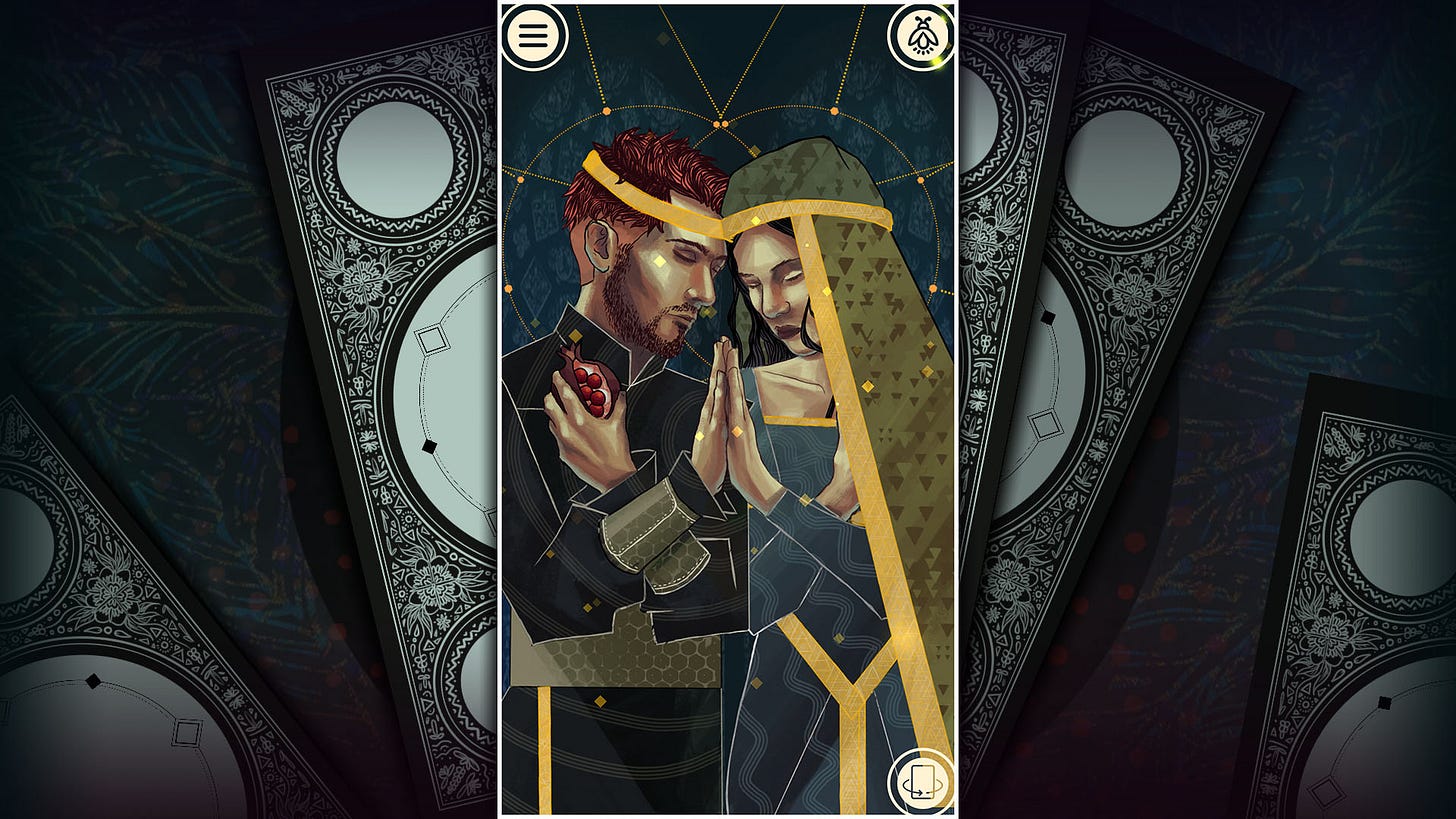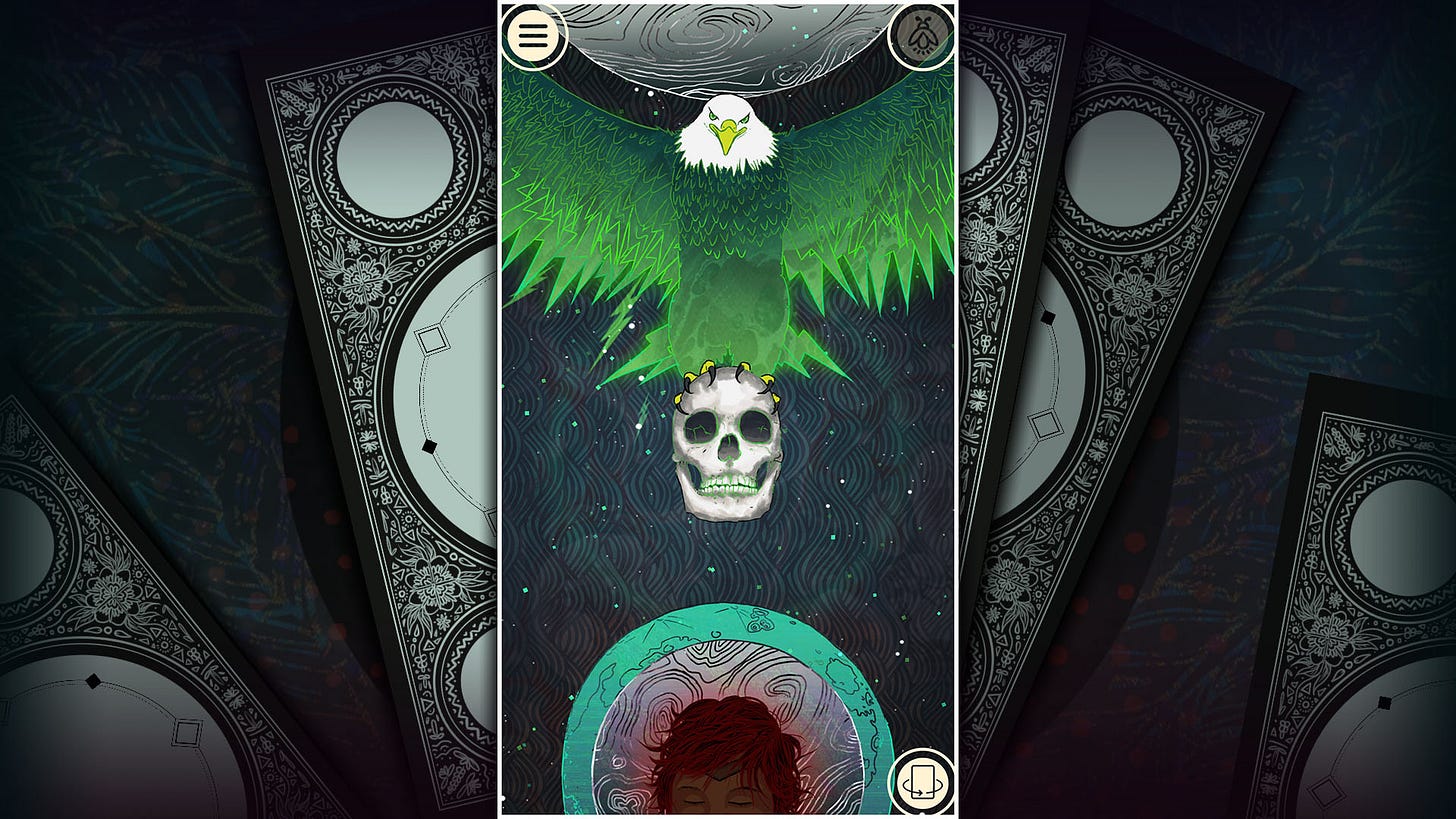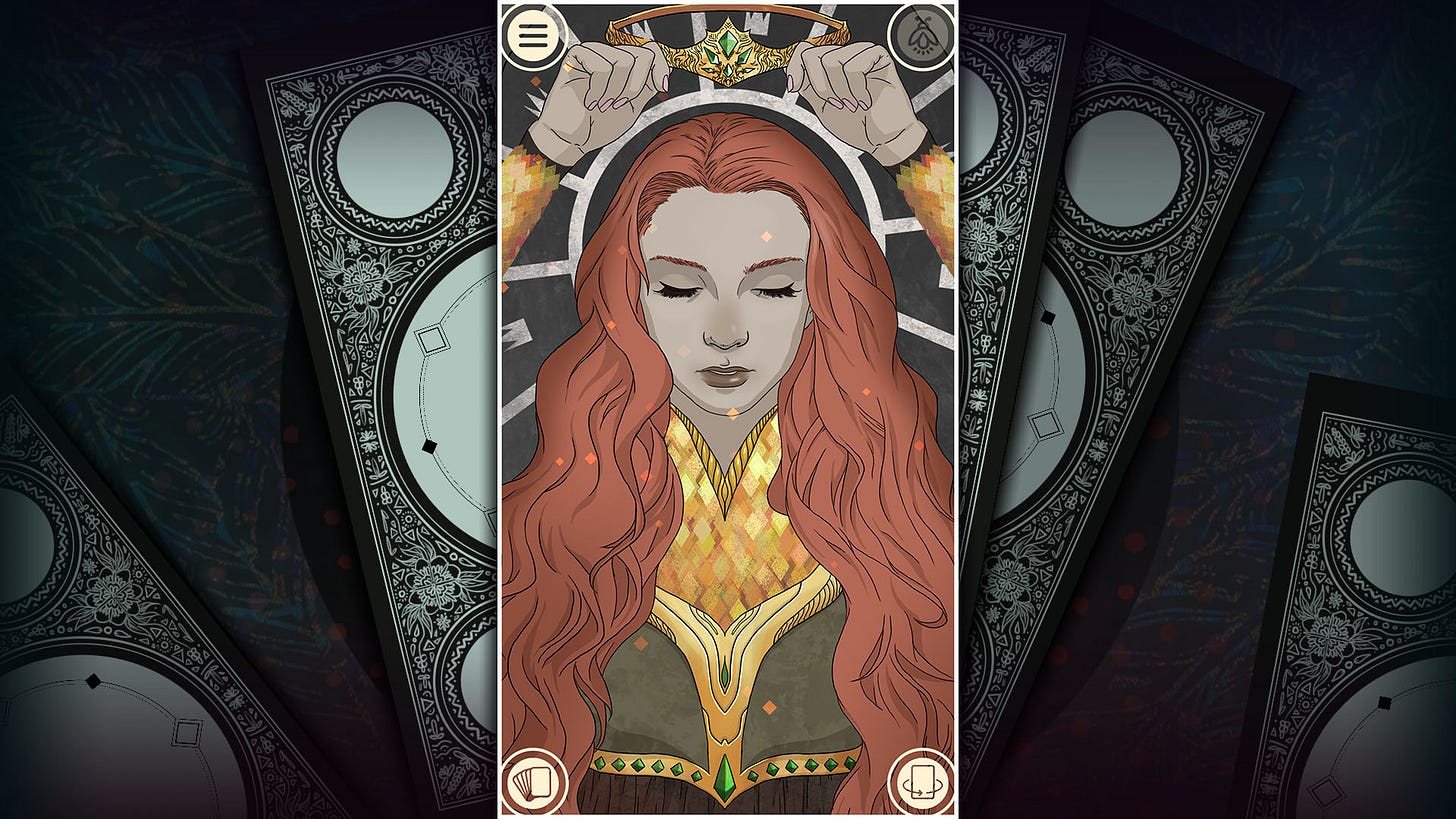A Story of Transformation
Creating positive change -- Tabea Iseli & the story of AVA
This is the story of AVA, an interactive fairy tale based on tarot cards and our personal experiences. It’s quite a long story, and I won’t deny that it’s hard for me to condense all this into 800 words. Which details are important? Which ones are the most interesting? Do I just focus on one aspect that is important to us? But no. Let’s take another route. This format is about change, about evolving and growing, about shaping our present and future. So let’s look into how AVA came into existence, how it changed and evolved, and how it also changed our lives.
So who even is “us”? In the beginning, it was just me. That sounds lonely, and to be honest, it really was. It was 2017. At that point, I was working in the game industry for around three years. But I wasn’t sure if I wanted to be in it for even just one more day. The three years were equally filled with joy, meeting wonderful people from around the world, and the feeling of finally working a job where I shine, but also with crunch (the industry term for working overtime constantly), abusive management, and sexism. Lots of sexism. If you look at the statistics of how long women stay in the game industry, it wouldn’t have been a surprise if I left. But then there also is the fascination of video games and the passion I had and still have for them.
I wanted other marginalised people to know that they are not alone.
The more I talked about these experiences and feelings with my peers, the more I realised how I’m not alone at all with this. I also realised that exchanging and sharing was a healing experience for me and my peers (this was pre #metoo, so talking about it wasn’t really that common at that point, at least not in my environment). And so the desire to build a project around this formed. I wanted our voices to be heard. I wanted other marginalised people to know that they are not alone. I wanted others to understand our situation. I wanted a dialogue. This is how AVA was born; a game that is based on these experiences, a story about being marginalised and harassed, but also the story of the burning desire to overcome, thrive and belong.
A team formed around this vision, and we started to build an interactive fairy tale game. I won’t go much into the details about why a fairy tale, how it’s connected to tarot cards, and how the whole game works. Let’s just say we found something we thought is unique, well suited to talk about serious issues in an entertaining way, and also appealing to a diverse audience; thus allowing us to start the dialogue. Then #metoo happened. We were thrilled! Of course not because of all the horrible things which came to light, but because this was something which got the conversation going on a large scale. Because it was proof to us that we’re working on the right thing. The longer the conversation went on, however, the more we realized how lost and hopeless we felt.
We felt the need to use AVA not only to start a conversation but also to create actual change
Everybody could see how women around the world, in every field, were experiencing this. Yet the change seemed to be small, punctual and slow. Months and even years passed, but again and again, similar stories popped up. So we felt the need to use AVA not only to start a conversation but also to create actual change. But how can a small indie game create actual change? We were just a small team with a limited reach. The more we talked about this, the more we realised that it wasn’t about us encouraging others to do something, it was about us doing something. So AVA had to become more than just a game, it needed to be about the people behind the game, the things around the game, and the opportunities that arise from us creating that game.
Looking back, this was the most important decision we took in AVA as a project. We are proud of AVA. It has become a beautiful, unique game, and everything we could have hoped for in a debut title. But AVA is so much more. It was a project which allowed us to turn our negative experiences and the feeling of powerlessness in a world full of inequity into something creative, into something we love and which grew. It allowed us to work with over 20 wonderful artists from around the world. It allowed us to fund a company, to hire diverse, talented people and to strive to give them a welcoming workplace. Last week, our 6th team member joined us, and together we’re embarking on the journey of our second game. All of this because of a small game idea about fairy tales and tarot cards.
Check out AVA
Tabea Iseli is the CEO and Lead Developer at Stardust
Tabea studied Game Design at the Zurich University of the Arts. She wears many hats, and that’s exactly what she loves about her job. Tabea has a background as a print production professional and graphic designer. She worked as a programmer and game designer for multiple renowned Swiss game companies and Universities, such as Blindflug Studios and University of Applied Sciences and Arts Northwestern Switzerland. In 2019 she founded Stardust, an indie game company creating meaningful games for a diverse audience. Tabea has a strong focus on gender and diversity in everything she does and is also a Women in Games Ambassador.
What We Are Reading…
Gaming at the Edge: Sexuality and Gender at the Margins of Gamer Culture
Adrienne Shaw
Video games have long been seen as the exclusive territory of young, heterosexual white males. In a media landscape dominated by such gamers, players who do not fit this mould, including women, people of colour, and LGBT people, are often brutalized in forums and in public channels in online play. Discussion of representation of such groups in games has frequently been limited and cursory. In contrast, Gaming at the Edge builds on feminist, queer, and postcolonial theories of identity and draws on qualitative audience research methods to make sense of how representation comes to matter.
"Gaming at the Edge offers a fantastic intervention into not only gaming but media studies more broadly. Adrienne Shaw astutely argues that our approach to understanding representation in games has been far too simplistic and, through her careful fieldwork, offers a rich framework for future studies. This is an important book for not only those interested in gaming but anyone thinking about the complexities of representation and media."—T.L. Taylor, MIT.
What We Are Playing…
Gravity Ghost
by Erin Robinson Swink/Ivy Games
Purchase Gravity Ghost
Gravity Ghost is a peaceful gravity hopper: Run, jump, and orbit your way through a handpainted galaxy. Join Iona the ghost as she searches for her lost best friend, the ghost fox. Explore a shattered galaxy and rescue its survivors, armed with powerups and mysterious terraforming powers. Meet the 7 magical guardians and best their challenges. There's no killing, no dying, no way to fail.
Gravity Ghost was developed by Erin Robinson Swink through her independent game company, Ivy Games, and features voice actors Ashly Burch (Horizon Zero Dawn), Logan Cunningham (Bastion) and Sarah Elmaleh (Gone Home), and a soundtrack by Ben Prunty (composer — FTL: Faster Than Light)
“…Gravity Ghost is a game about personal growth, family and discovering the strength to continue living even when that seems impossible…” (Jessica Conditt, Engadget)
A little extra…
I had the great pleasure of chatting to Sam Fry on TECHnique Podcast, about the journey behind #WildWomanGamer and why having agency over our narratives is so important at this time. Listen here
That’s all for this month but please, come by and visit the #WildWomanGamer project online.
#WildWomanGamer is curated by Victoria Bennett & published by Wild Women Press.







